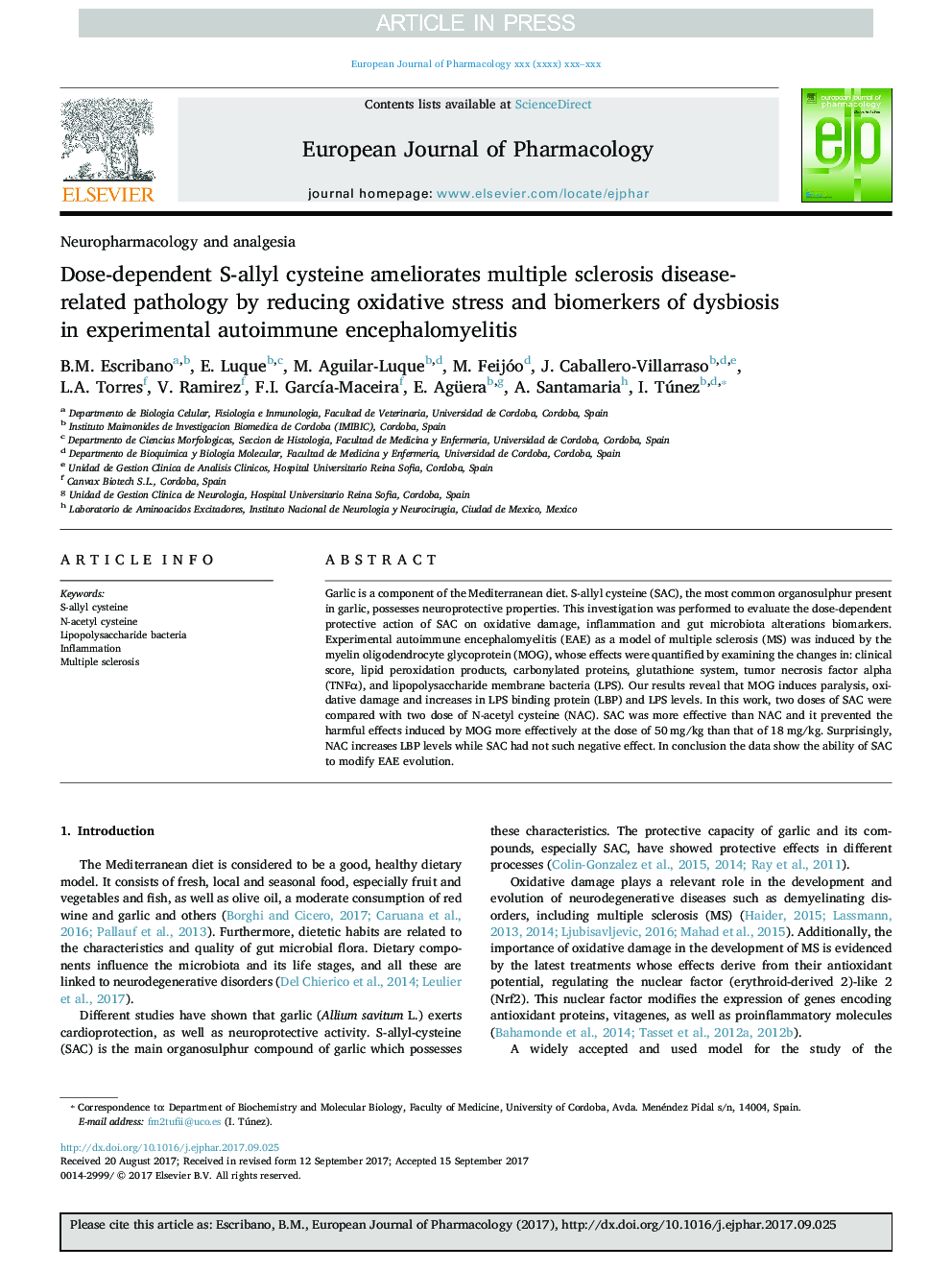| کد مقاله | کد نشریه | سال انتشار | مقاله انگلیسی | نسخه تمام متن |
|---|---|---|---|---|
| 8529977 | 1558865 | 2017 | 8 صفحه PDF | دانلود رایگان |
عنوان انگلیسی مقاله ISI
Dose-dependent S-allyl cysteine ameliorates multiple sclerosis disease-related pathology by reducing oxidative stress and biomarkers of dysbiosis in experimental autoimmune encephalomyelitis
دانلود مقاله + سفارش ترجمه
دانلود مقاله ISI انگلیسی
رایگان برای ایرانیان
کلمات کلیدی
موضوعات مرتبط
علوم زیستی و بیوفناوری
علم عصب شناسی
علوم اعصاب سلولی و مولکولی
پیش نمایش صفحه اول مقاله

چکیده انگلیسی
Garlic is a component of the Mediterranean diet. S-allyl cysteine (SAC), the most common organosulphur present in garlic, possesses neuroprotective properties. This investigation was performed to evaluate the dose-dependent protective action of SAC on oxidative damage, inflammation and gut microbiota alterations biomarkers. Experimental autoimmune encephalomyelitis (EAE) as a model of multiple sclerosis (MS) was induced by the myelin oligodendrocyte glycoprotein (MOG), whose effects were quantified by examining the changes in: clinical score, lipid peroxidation products, carbonylated proteins, glutathione system, tumor necrosis factor alpha (TNFα), and lipopolysaccharide membrane bacteria (LPS). Our results reveal that MOG induces paralysis, oxidative damage and increases in LPS binding protein (LBP) and LPS levels. In this work, two doses of SAC were compared with two dose of N-acetyl cysteine (NAC). SAC was more effective than NAC and it prevented the harmful effects induced by MOG more effectively at the dose of 50 mg/kg than that of 18 mg/kg. Surprisingly, NAC increases LBP levels while SAC had not such negative effect. In conclusion the data show the ability of SAC to modify EAE evolution.
ناشر
Database: Elsevier - ScienceDirect (ساینس دایرکت)
Journal: European Journal of Pharmacology - Volume 815, 15 November 2017, Pages 266-273
Journal: European Journal of Pharmacology - Volume 815, 15 November 2017, Pages 266-273
نویسندگان
B.M. Escribano, E. Luque, M. Aguilar-Luque, M. Feijóo, J. Caballero-Villarraso, L.A. Torres, V. Ramirez, F.I. GarcÃa-Maceira, E. Agüera, A. Santamaria, I. Túnez,